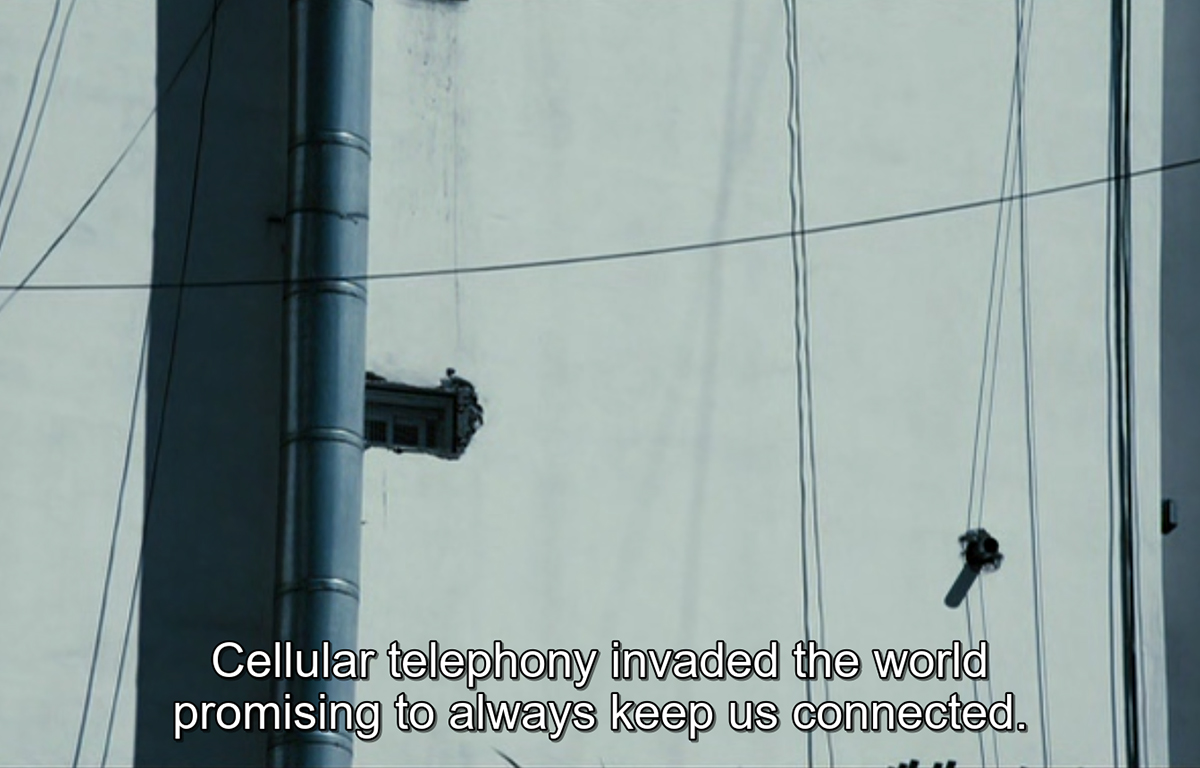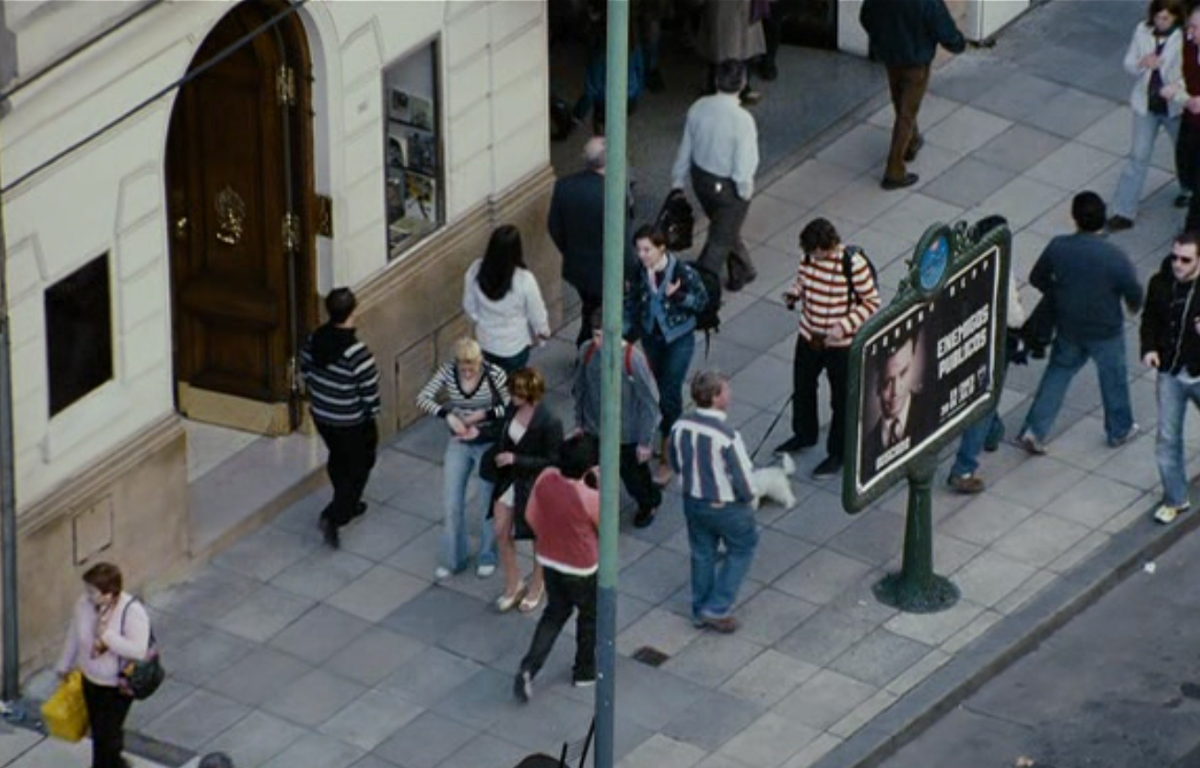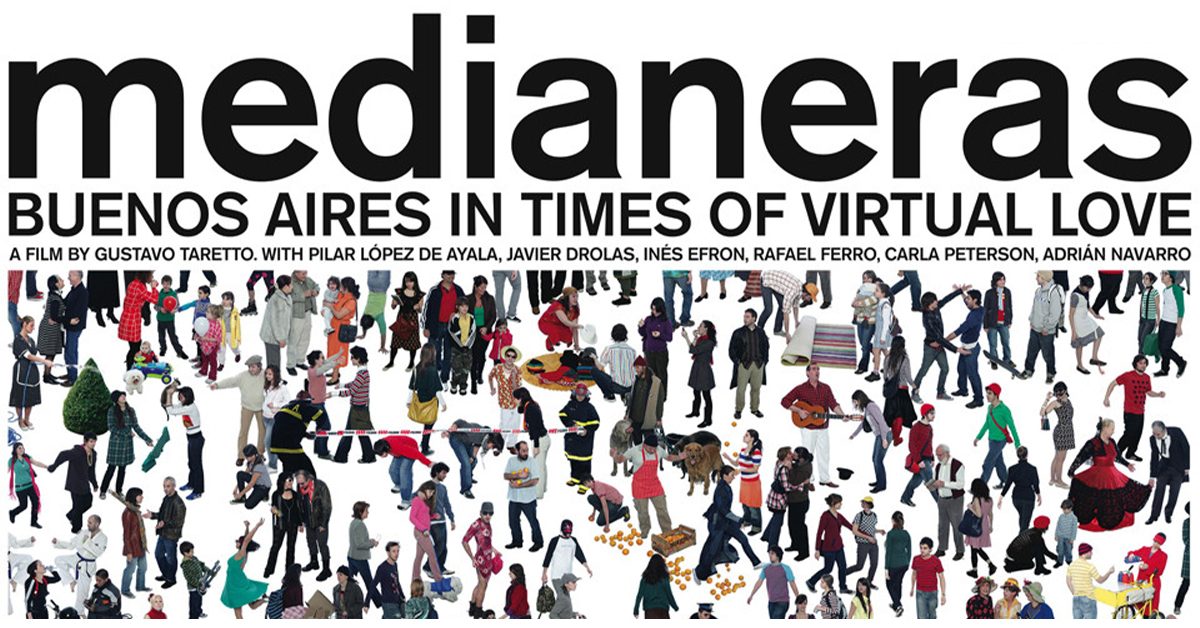I spend a lot of time considering what movies are “about” beyond their plot. What does a movie stand for? What does it speak to? What is it an allegory for? When friends of mine are going through particular life experiences, I love to be able to tell them: “Oh, there’s a movie about this.”
Medianeras (dir: Gustavo Taretto, 2011) is an underrated Argentinian movie (Sidewalls, in English) that I’ve always enjoyed showing to friends who haven’t seen it. As a movie about quirky, lonely characters looking for love in a big Latin American city, it spoke directly to my experience as a young person growing up in Rio. But rewatching it lately, I discovered that it is one of few movies—that I’ve seen—that portray the emotional experience of the COVID-19 lockdown in 2020/2021, especially regarding the loneliness that lots of people felt while stuck in their homes.

Movies like Contagion and Don’t Look Up, among others, do a reasonable job of portraying the extraordinary scientific and political aspects of this time period, but, being the sadboy that I am, I of course am drawn to the ones that describe the deep longing and bruising isolation of these times.
Medianeras tells the parallel stories of Martín and Mariana, two Buenos Aires introverts who spend most of their time alone in their apartments and who aspire to a romance that might make them feel less isolated from the world. Because the film makes the bold choice to have the pair not meet for most of the runtime, it is less about romance than it is about the loneliness that leads us to seek out romance. The main characters take turns narrating their lives as they brave expeditions out of their apartments and go on dates with people who are not quite right for them, which, while demoralizing for the characters, only increases the audience’s anticipation for these two star-crossed lovers to meet.
In telling their stories, Martín and Mariana also paint a picture of middle-class life in Buenos Aires during the digital revolution of the post-2000 years. Martín is a web designer whose apartment mostly consists of a lot of objects surrounding his work desk and computer and who orders most of his food online. Mariana is an architect working as a window dresser who is experimenting with online chat rooms and decides it’s time to delete all the photos of her ex from her laptop. The use of technology in the film is a wonderful time capsule of a very specific time: when phones had buttons, digital cameras were still popular, online dating was mostly chatting and not photo-swiping, and doom scrolling hadn’t been invented.

While the characters and the storytelling of the movie are heavily inspired by quirky movies of its time, like Amelie, The Royal Tenenbaums and 500 Days of Summer, it stands out for the clever visual metaphors it uses to describe individual loneliness in a bustling metropolis. Mariana, for example, feels more understood by the mannequins she brings home for work than other humans and at one point falls asleep inside of the shop window she is designing, leading her to wake up alone in a tiny glass box separated from the world, occasionally glanced at by uncaring passersby. Martin, who is trying to overcome his anxiety around going outside, at one point removes a beloved toy of his from its never-opened original packaging, representing his desire not to insulate himself from the world due to his fears. He also takes up analog photography, following a suggestion from his therapist that it would encourage him to get out of his apartment more often. This hobby subtly ties into one of the film’s main themes, which is about finding small islands of beauty and life amidst the giant homogenized backdrops of urban sprawl.

Watching these characters entertain themselves alone in their apartments due to their fear of the outside world, while rooting for the day they can finally be freed from their solitude by finding each other, generates an eerie sense of deja-vu in a post-2020 world. While digital isolation has been a topic of cultural discussion since the start of the millennium, the COVID-19 pandemic intensified and exacerbated it to its extreme, causing a boom in remote-work, which in this movie is still treated as a semi-recent technological development (as opposed to a joke about how everyone is wearing pajama pants on zoom calls, for example). It is nice to have a movie that can be a metaphor of that time for me, while also being a romance, while also being about how feeling disconnected from others can lead us to seek out actual connection and how times that we experience as difficult or sad can often lead to positive change and to better, happier times. It is the sappiest version of a metaphor for lockdown and it’s a movie that could only have been made when it was, but it makes me happy.
If you want to watch Medianeras, it is (at the time of writing) streaming on Youtube and Amazon Prime.
